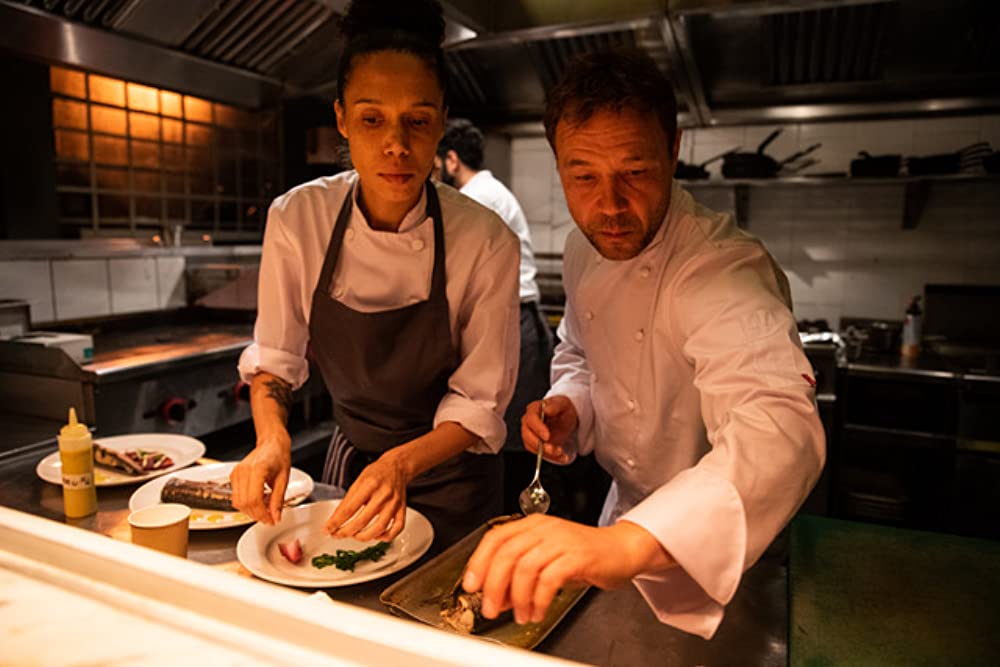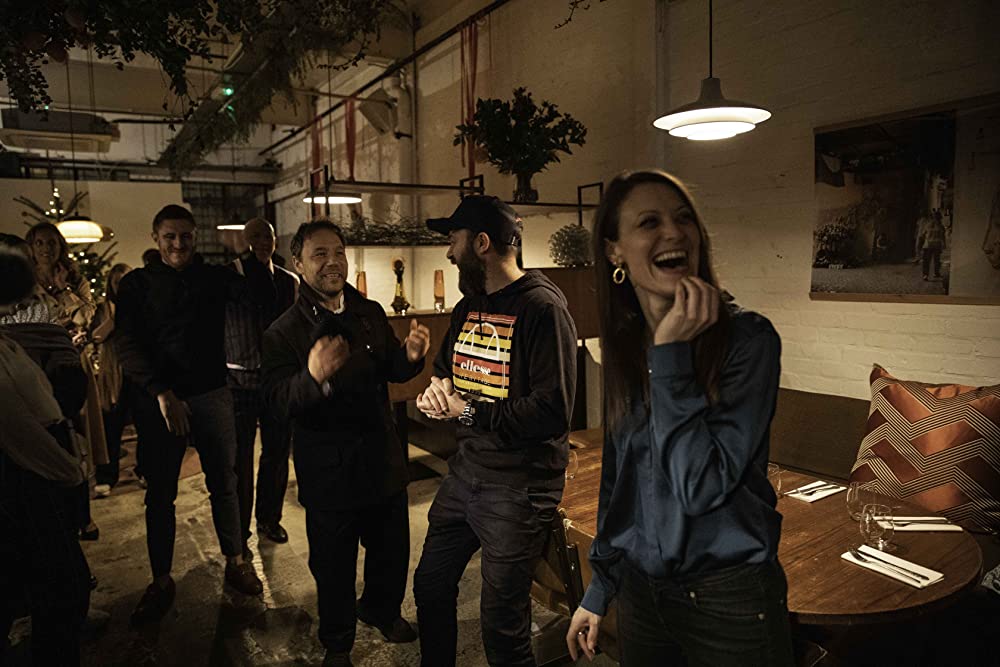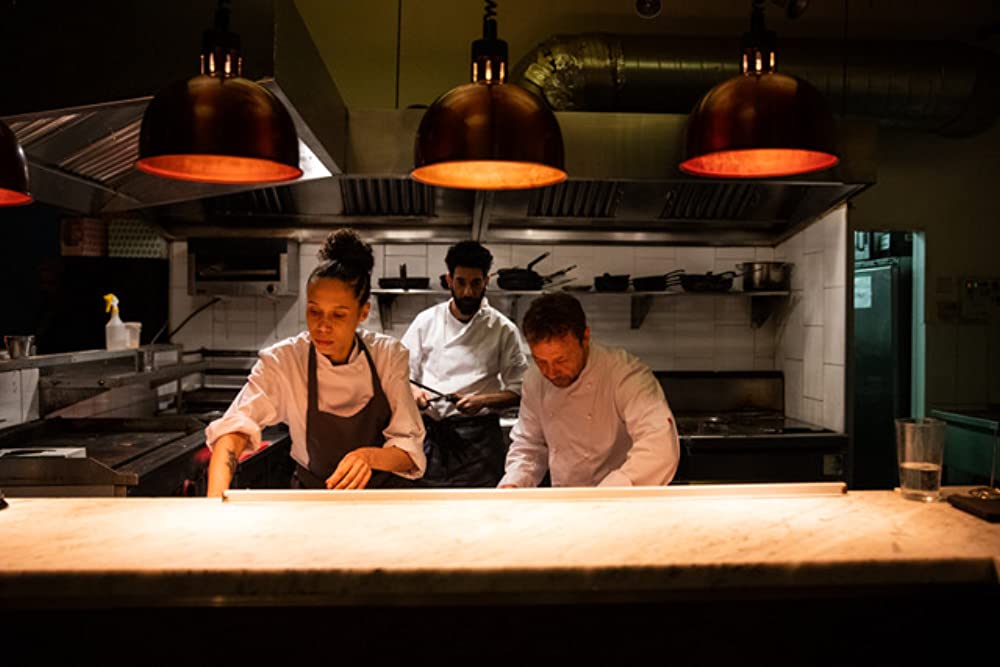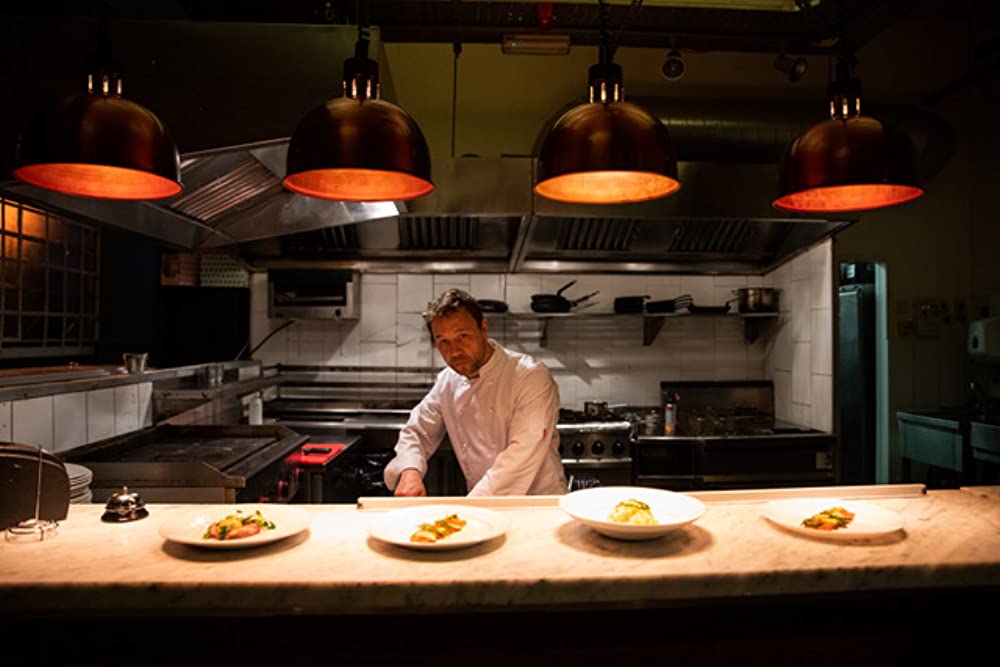By Ellie Marer, Second Year, English
Philip Baranti’s Boiling Point follows the head chef of a successful London restaurant, Andy (Stephen Graham), on the restaurant’s busiest Friday of the year.
Beginning with a phone call to his wife, we are introduced to the additional components of his personal life; a healthy mixture of divorce and addiction. When he arrives late to the restaurant, he is met with a series of unfortunate events that constantly teeter on the brink of disaster, but refuse to bubble over. Competing with Graham’s performance is Vinette Robinson, who portrays the painful tension between loyalty and resentment convincingly through Carly, bearing the brunt of Andy’s slip-ups.

Matters get worse when the love-to-hate ex-colleague of Andy’s, Alastair Skye, enters the restaurant with a ruthless food critic, plainly motivated by more than his apparent support for Andy’s success. Seemingly unrelated crises collide in the film’s climax, with a situation that seems impossible to escape from.
Following 20 years of acting, the film is a result of Baranti’s unexpected switch into a directing career. Its technical difficulty ought to be applauded, the entire hour and a half taken in one shot. Extra credit should be given to cinematographer Matthew Lewis, who managed to keep the tape genuinely uncut, unlike recent films like 1917 (2019) and Birdman (2014), which are only edited to look this way.

The cast had only 5 days to rehearse, and Covid complications meant that they had to use their third take. In this way, it feels more like watching an immersive play than a film. It is dramatic, then, but its tone is also viscerally realistic, only possible because of Baranti’s own experience as a head chef in the less successful days of his acting career. Those who have worked in restaurants can attest to this film being one of the most accurate, un-romanticised portrayals of a kitchen. As is the nature of real life, however, the pain is brought with underrated moments of comic relief. The health inspector at the beginning for example, whilst criticising everything about the restaurant, is so patronising that he becomes funny.

The characters are multidimensional in this way, making it almost impossible to believe that they do not exist outside the camera frame. Some criticise the film for taking on too many storylines, but these character portraits are captured with bold, if brief, strokes. The characters we comfortably dislike we can most greatly sympathise with a minute later due to the efficiency of the dialogue as well as the dexterity of the actors. It is the number of storylines that make the environment seem like that of a real restaurant; Three-Dimensional.
When watching Boiling Point, viewers may be reminded of the Gordon Ramsay reality TV show Hell’s Kitchen (2005-present). The film though, whilst being fictional, undeniably has a more tangible sense of humanity; what makes this film so moreish is its success in well and truly presenting ‘Hell’ as a place on earth.
Featured Image: IMDB, Christian Black, Saban Films
How would you handle the heat in Boiling Point?









